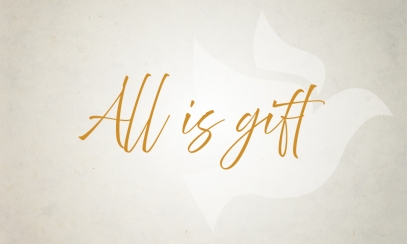
Please go vote!
Please vote! That is not very controversial. Now try this: Please vote according to your conscience. Still, that is not too bad. Most of us do not want to violate our consciences. Now, how about this: Please make sure your conscience is well-formed. Ah, now we might be entering a more problematic area. For a Catholic, a well-formed conscience aligns us with the will of God, which we discern through close and prayerful attention to the teachings of Jesus, as recorded in Scripture and as taught by the bride of Christ, the Church.
From that foundation, there are certain non-negotiable matters that all of us must consider. Will my vote further erode the protection of the unborn, or will it advance that protection? Will my vote protect the God-created institution of marriage, or will it promote redefinitions of marriage? Will my vote allow our Catholic institutions to enjoy the religious freedom guaranteed in the Constitution, or will it end many Catholic services offered to Catholics and non-Catholics alike? Will my vote support the Department of Health and Human Services in its attempts to define what it means to be Catholic, or will it help to undo that unconstitutional intrusion into the life of the Church? Will my vote advance immigration reform, or will it hinder it?
These are weighty questions and require of us serious reflection, because our vote can determine the answers to these matters, and so many more.
A well-formed conscience recognizes that there are some activities that are always evil and should never be done, even as a means to achieve some other good. These activities include elective abortion, euthanasia, physician-assisted suicide, destruction of and experimentation on human embryos, depriving people of their religious freedom, same-sex “marriage,” racial discrimination, and the production and use of pornography. Concerning such activities, no one with a well-formed conscience, especially a Catholic, may promote or even remain indifferent to them.
We would commit moral evil if we were to vote for a candidate who takes a permissive stand on these actions that are intrinsically evil when there is a morally acceptable alternative. Of course, every candidate is human and no political party embraces all our moral stances. Yet, this never gives us permission to stay home on Election Day or to dismiss the importance of key Church teachings. Even when the choices are imperfect, we still must keep before our eyes the teachings of Jesus Christ and his Church, especially regarding life, marriage and religious freedom.
So, please vote! Please vote with a conscience well-formed by fundamental moral principles. As faithful citizens, let us cast our votes through the lens of faith and bring to the public square our commitment to the common good. Let this, in fact, be an exercise of our religious liberty, our freedom to express our faith in public, to live out our Christian duties free from unjust governmental controls, and to promote the glorious heritage of freedom in our country for the next generation.



